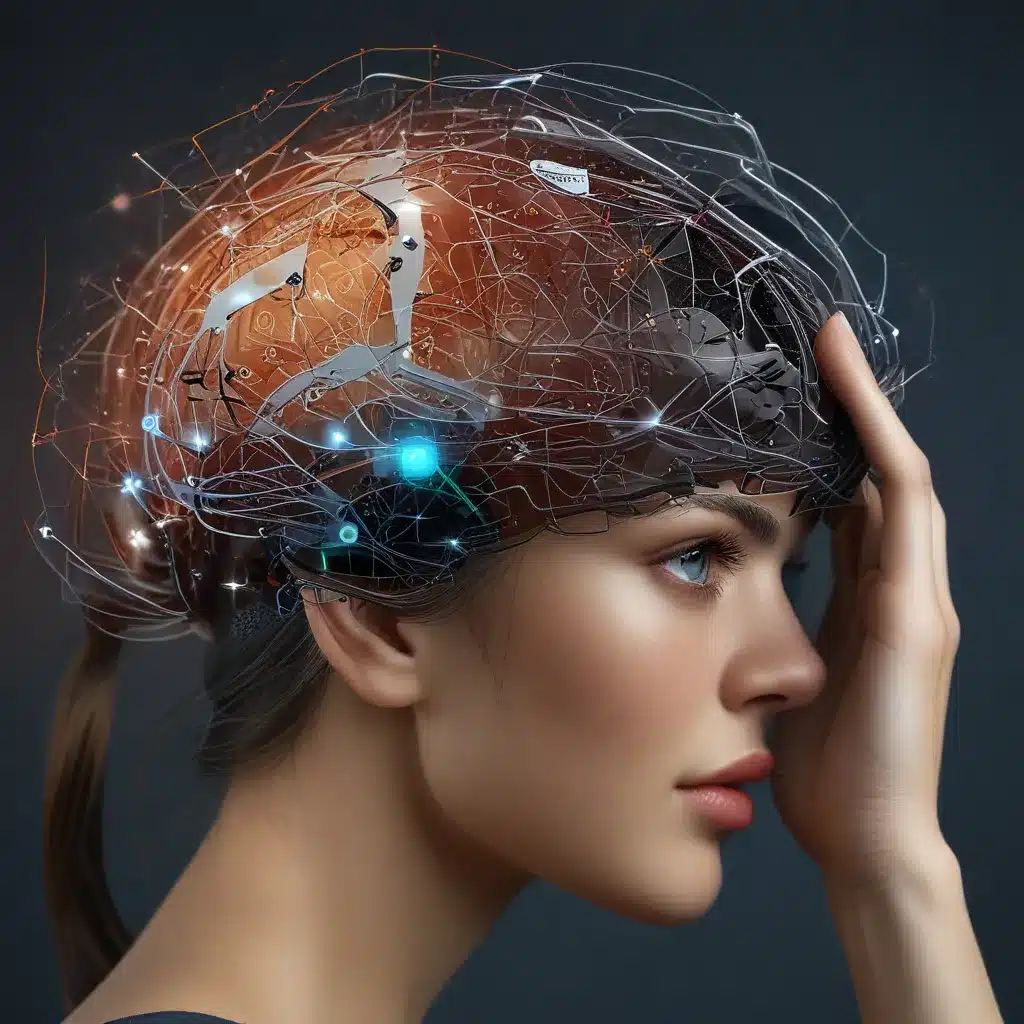
Navigating the Double-Edged Sword of Technology
As I sit here, tapping away on my laptop, I can’t help but wonder – is technology truly a blessing or a curse when it comes to our brains? On one hand, the digital world has opened up a universe of information and possibilities at our fingertips. But on the other, it seems like our beloved devices are constantly vying for our attention, distracting us from the present moment and potentially rewiring our neural pathways in ways we’re only just beginning to understand.
The Structural Changes in Our Brains
Let’s start with the physiological impact. According to a study conducted by researchers from France and the United Kingdom, frequent media multitasking may actually contribute to a diminished gray matter in the anterior cingulate cortex – an area of the brain responsible for attentional control. The study found that the more someone engages in switching between different digital media, the more their brain’s ability to focus and pay attention may be compromised.
Now, I don’t know about you, but I’m guilty as charged when it comes to constantly toggling between emails, social media, and the latest breaking news. It’s like my brain is a hyperactive puppy, constantly darting from one shiny object to the next. And the worst part? I often feel like I’ve accomplished very little by the end of the day, despite the illusion of productivity.
The Pleasure Center Conundrum
But the impact of technology on our brains doesn’t stop there. Research has also shown that the near-constant stimulation of our brains’ pleasure centers through things like text messages, social media, and video games can actually make those centers less responsive to other enjoyable experiences – like enjoying a good meal, reading a book, or having a deep conversation with a loved one.
It’s like our brains have become addicted to the dopamine rush of digital thrills, and everything else just pales in comparison. And let’s be honest, how many of us have found ourselves mindlessly scrolling through our feeds, only to emerge from the rabbit hole feeling unfulfilled and unsatisfied?
The Sedentary Lifestyle Trap
But the problems don’t end there. Technology has also been linked to a more sedentary lifestyle, which can have serious implications for our physical and mental health. Studies have shown that increased computer and technology use can lead to a decrease in physical activity and an increase in obesity.
And let’s not forget the spiritual implications. As the Bible reminds us, our bodies are temples of the Holy Spirit, and we’re called to honor God by taking care of them. But when we’re glued to our screens and neglecting our physical wellbeing, we’re essentially turning a blind eye to that sacred responsibility.
Reclaiming Our Cognitive Capacity
But it’s not all doom and gloom. The brain, as it turns out, is remarkably pliable – a phenomenon known as neuroplasticity. And that means we have the power to shape and mold our cognitive abilities, even in the face of the digital onslaught.
According to researchers at Stanford University, one of the keys to unlocking our brain’s full potential is to deliberately engage in activities that challenge our memory and attention, like memorizing phone numbers or reciting meaningful quotes. And let’s not forget the importance of physical activity and quality sleep in maintaining optimal brain function.
A Balanced Approach
So, should we use technology to enhance our brains? The answer, it seems, lies in striking a delicate balance. While we can’t ignore the very real challenges that technology poses, we also can’t afford to shun it completely. After all, IT Fix, the computer repair service in the UK, has shown us how technology can be an invaluable tool for connecting, learning, and problem-solving.
The key, I believe, is to be mindful and intentional in our technology use. Set boundaries, limit distractions, and make time for activities that nourish our minds and bodies. And who knows? Maybe with a little bit of discipline and a lot of self-awareness, we can harness the power of technology to unlock the full potential of our amazing brains.












